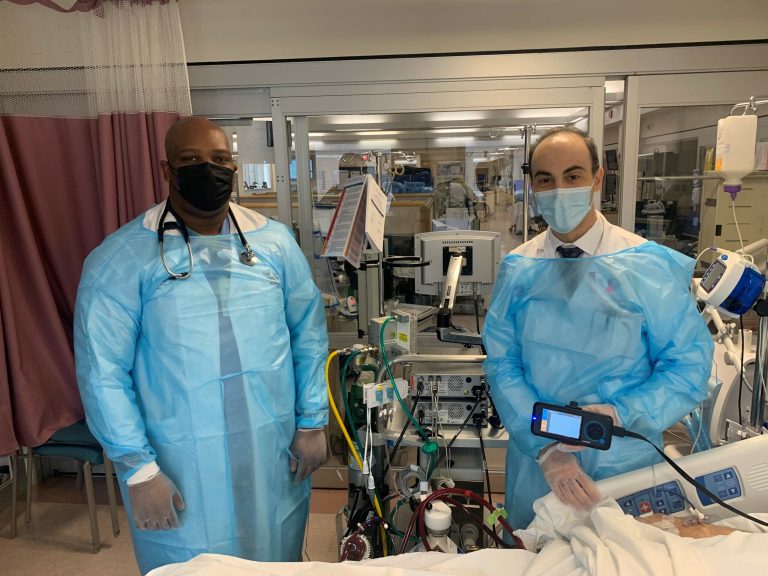
Time is essential when you are experiencing a seizure, and every minute counts. St. Francis Hospital and Heart Center is offering hope for critically-ill patients through the first-of-its-kind Ceribell Rapid EEG Brain Monitoring program.
Ceribell provides immediate access to EEG information, a vital sign for brain function, allowing physicians to traige at-risk patients in just five minutes and monitor to ensure the best treatment possible.
Conventional EEG equipment has come a long way since the 1930s but is still not ideal for emergency situations. The equipment is often heavy, making it problematic to move, and challenging because specialized, trained EEG technicians are required.
Also, the machinery is difficult to disinfect, something that is essential in critical care environments. Patients who are especially ill have a higher risk of seizures, many experiencing attacks without any outward signs (non-convulsive); these are only detectible using EEG.
Non-convulsive seizures that go unnnoticed or are prolongued can lead to permanent brain injury, higher risk of morbidity and mortality, and longer hospital stays. difficult
The Neurocritical Care Society recommends EEGs should be initiated within 15-60 minutes of when seizures are suspected. The American Heart Association 2020 guidelines for post-cardiac arrest patients require prompt EEG for seizure diagnosis.
Meeting these guidelines has become much easier with the help of Ceribell Rapid EEG. Without it, even top academic centers with 24/7 EEG capability experience a four-hour wait time for conventional equipment.
When relying on clinical judgment alone while waiting for these complex EEG systems, diagnostic accuracy has been shown to be only slightly better than chance (65%).
The Ceribell Rapid EEG Brain Monitoring system was developed to address the limitations in EEG acquisition and interpretation so at-risk patients can be triaged more quickly. Ceribell consists of a simple headband, pocket-sized recorder with intuitive software, and an online portal for remote viewing. Using this system, physicians can review EEG data and access response to treatment and optimize care, all in real time.
“The Ceribell Rapid EEG system has provided our neurocritical care team with seizure detection that now occurs on a scale of minutes, no matter the time of day, without the expected limitations of electromagnetic and radiofrequency interference commonly encountered in the ICU setting,” said St. Francis Director of Neurology and Stroke Director Vincent DeOrchis. “Remote viewing, which is available on the neurologist’s smartphone, allows for interpretation anywhere, anytime. The artificial intelligence built into the Ceribell software now allows the ICU team to accurately predict and treat seizure activity immediately at the time of onset, preventing prolonged seizure burden and potential brain injury.”
Ceribell EEG can be set up by any health care provider in five minutes. Even clinicians with no prior background in EEG can triage seizures in minutes using the automatic monitoring and alert system that enables rapid identification of harmful brain patterns.
“St. Francis remains committed to providing our patients with the highest quality of care, using the latest technology available,” said St. Francis President Charles L. Lucore, MD, MBA. “Ceribell EEG allows us to diagnose and provide accurate care even quicker, ultimately saving lives.”






